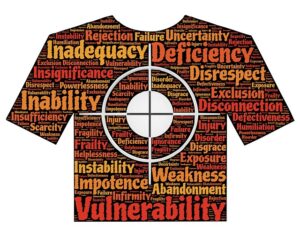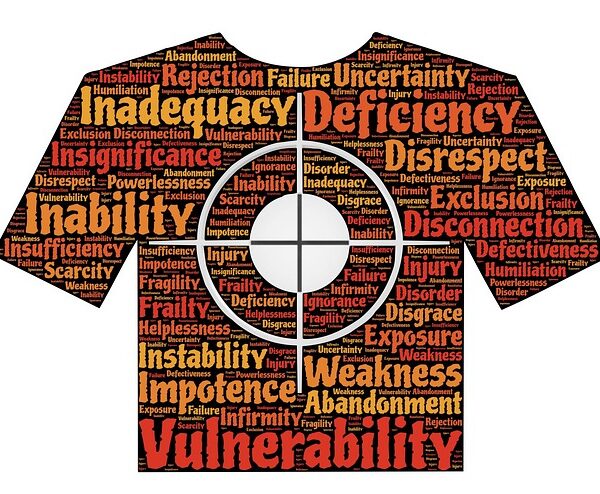Millions of men worldwide suffer from erectile dysfunction (ED). It occurs when a man cannot attain or maintain an erection during sexual activity, resulting in significant distress and diminished quality of life.
In recent years, it has also been recognised that psychological factors, such as diabetes, hypertension, and heart disease, play a role in the development of erectile dysfunction. Mental obstructions are one of the factors that may contribute to erectile dysfunction.
Negative thoughts, beliefs, or emotions that inhibit sexual arousal and performance are referred to as mental blockages. These barriers may be the result of past experiences such as trauma or rejection, sexual performance anxiety, relationship problems, or personal insecurities.
According to research, mental blocks can result in physiological changes in the body, such as decreased blood flow to the penis and altered hormonal levels, which can contribute to erectile dysfunction. In this article, we will investigate the relationship between mental obstructions and erectile dysfunction and discuss methods for overcoming these obstacles for improved sexual health.
Understanding Erectile Dysfunction
 Similar to a ship without an anchor, the human body can occasionally lose the ability to execute particular functions. One of these functions is impotence, which effects millions of men worldwide.
Similar to a ship without an anchor, the human body can occasionally lose the ability to execute particular functions. One of these functions is impotence, which effects millions of men worldwide.
ED is defined as the inability to attain or maintain a sufficient erection for sexual activity. It is more prevalent among elderly men, but younger men can also be affected.
There are numerous causes of erectile dysfunction, including physical and mental factors. Heart disease, diabetes, excessive blood pressure, and hormonal imbalances are physical causes. Stress, anxiety, depression, relationship issues, and performance anxiety can be psychological causes. In some cases, both physical and psychological factors may contribute to erectile dysfunction.
Those affected by erectile dysfunction (ED) have access to a variety of treatment options. These treatments include medication, adjustments in lifestyle, and therapy sessions.
Viagra and Cialis function by increasing blood flow to the penis in response to sexual stimulation. Changes in lifestyle, such as exercise and healthful eating, have been shown to alleviate ED symptoms over time. Sessions of therapy can help address the underlying psychological issues that contribute to ED.
Ultimately, it is essential to seek medical attention when experiencing ED symptoms, as early diagnosis generally results in improved outcomes. The debilitating effects of erectile dysfunction (ED) are no longer irreversible, as effective treatment options are now available.
The Importance of Psychological Factors in Education
Erectile dysfunction (ED) is often influenced by psychological factors. One of these factors is performance anxiety, or the dread of being unable to perform sexually. This apprehension can cause tension and negatively affect sexual performance. Various factors, such as past erotic experiences or societal expectations regarding masculinity, can cause performance anxiety.
Individuals with ED brought on by psychological factors like performance anxiety have been shown to benefit from counselling therapy. Counselling therapy consists of speaking with a mental health professional who assists in identifying the underlying causes of an individual’s anxiety and provides coping strategies. In some instances, couples therapy may be recommended if relationship issues are a contributing factor to the issue.
Despite the fact that physical causes of ED cannot be overlooked, it is essential to consider the potential role of psychological factors in its development and management. Those experiencing ED as a result of performance anxiety or other related factors may find respite through psychotherapy.
Patients and healthcare professionals must recognise that treating the psychological aspects of ED is equally as essential as treating any physical symptoms.
What are mental barriers?
Mental blocks are a psychological phenomenon that can impede a person’s ability to complete specific duties or activities. When the mind perceives certain situations as threatening, anxiety and dread ensue.
There are numerous causes of mental blockages, including past traumatic experiences, lack of confidence, and negative self-talk. The causes of mental obstructions vary based on the individual and their life experiences.
Some individuals may develop mental impediments as a result of childhood traumas or challenging life events. For others, it may be the result of excessive pressure to perform in a specific area or unreasonable expectations established by themselves or others. Additionally, underlying mental health conditions such as depression or anxiety may contribute to the development of mental blockages in some individuals.
Mental blocks require fortitude and perseverance to overcome. It is essential to identify the triggers that cause these blocks and resolve them through therapy, meditation, positive affirmations, or other relaxation methods.
Self-care practises, such as exercise, healthy eating, and sufficient relaxation, also play a significant role in reducing stress and promoting overall health. Developing resilience against mental blocks requires time, but is attainable with persistent effort and family support.
Methods for overcoming mental blocks:
- Determine triggers – Seek professional assistance if necessary
- Engage in self-care, such as obtaining sufficient rest, eating a balanced diet, exercising regularly, and engaging in relaxation techniques such as meditation or deep breathing exercises.
The Relationship Between Cognitive Blocks and Erectile Dysfunction
According to an old proverb, “the mind is a powerful thing.” This statement is particularly applicable to erectile dysfunction (ED). Many men can suffer from erectile dysfunction due to mental obstructions.
When psychological factors such as anxiety or tension begin to impair sexual performance, self-doubt frequently ensues and exacerbates the situation.
Typically, mental block treatment for ED involves confronting underlying psychological issues that may contribute to the condition. Individuals can overcome any negative thoughts or sentiments regarding their sexual abilities through psychotherapy.
Patients can improve their overall mental health and possibly their sexual function by learning coping mechanisms and techniques for reducing stress levels.
Not all cases of erectile dysfunction are caused by mental barriers alone. Physical factors, including hormonal imbalances and cardiovascular disease, can also contribute to the condition.
However, for those who experience ED due to psychological causes, mental block treatment through psychotherapy can offer hope for enhanced sexual function and overall health without the use of medication or other medical interventions.
Conquering Mental Obstacles To Improve Sexual Health
Mental health is crucial to a person’s overall health, including sexual health. Mental obstructions can result in erectile dysfunction in men and diminished libido or difficulty attaining orgasm in women. Various factors, including stress, anxiety, melancholy, relationship issues, past trauma, and negative self-talk, may contribute to these mental obstacles.
Individuals with mental impediments that affect their sexual health have access to a variety of therapy options. Cognitive-behavioral therapy (CBT) is a form of talk therapy that assists individuals in recognising and altering negative thought patterns that contribute to undesirable behaviours. Sex therapy centres on addressing specific sexual concerns through counselling sessions with a licenced therapist.
In addition to seeking professional assistance through psychotherapy, there are additional methods for overcoming mental barriers that affect sexual health. Meditation and deep breathing exercises can reduce tension and increase concentration during intimate moments. Yoga and regular exercise promote improved mental health by releasing endorphins that enhance mood and energy.
Open communication with your companion regarding sexual desires and preferences can reduce performance pressure.
- Self-care: Making self-care practises a priority, such as getting enough sleep, eating a healthy diet, and engaging in hobbies, can enhance overall mental health.
- Sensate Focus: A sex therapy technique in which couples engage in non-sexual contact exercises to increase intimacy without the expectation of sexual activity.
- Medication: In some instances, medication prescribed by a healthcare professional may be required to treat the underlying conditions that contribute to erectile dysfunction or reduced libido.
Enhancing mental health is indispensable for achieving optimal sexual health outcomes. Mental blocks affecting a person’s sexuality can be better managed by seeking professional assistance through therapy options and incorporating practical suggestions into daily life routines.
What are the physical manifestations of mental obstructions that cause erectile dysfunction?
Mental blocks, which are emotional triggers that prevent a man from attaining or sustaining an erection, are a common cause of erectile dysfunction (ED). These obstacles can originate from a variety of causes, such as performance anxiety and relationship problems.
Symptoms of erectile dysfunction may include difficulty obtaining or maintaining an erection, diminished sexual desire, and premature ejaculation. Although these symptoms may have a physical cause, such as insufficient testosterone levels or nerve damage, psychological factors may also be to blame.
Men experiencing any of these symptoms should consult a physician to ascertain the underlying cause and the most effective treatment.
Can Medication Be Used To Treat Erectile Dysfunction Caused By Mental Blocks?
Can medication be used to cure the mental impediments that lead to erectile dysfunction?
Yes, it has been determined that Viagra and Cialis are effective in treating erectile dysfunction caused by psychological factors, such as mental blocks. It is essential to note, however, that these medications may cause adverse effects such as headaches, dizziness, and nausea.
To ensure safety and efficacy, it is recommended to consult a healthcare professional before taking any ED medication. In addition, therapy or counselling may be beneficial for addressing the underlying psychological issues that contribute to the mental block.
Individual results may vary, and it is essential to discuss all treatment options with a medical professional.
Can Psychotherapy Or Counselling Assist In Overcoming Mental Obstacles That Cause Erectile Dysfunction?
Individuals contending with mental impediments that may contribute to erectile dysfunction may benefit from therapy or counselling in several ways.
Mindfulness-based therapy is an approach that teaches individuals to become more aware of their thoughts and emotions in the present moment without judgement. This technique has been shown to reduce anxiety and depression symptoms, both of which are prevalent causes of sexual difficulties.
In addition, communication between partners is crucial for overcoming intimacy-related obstacles. Couples can strengthen their emotional connection and, ultimately, their sexual satisfaction by creating a safe space for open communication and collaborating on solutions.
In some instances, medication may be required, but addressing underlying psychological factors through therapy can have long-term benefits for overall health.
Mental Blocks Causing Erectile Dysfunction: Can They Occur Without Prior Psychological Problems?
There are both physical and psychological causes of erectile dysfunction, and mental impediments are one of the potential causes.
It is conceivable for a person to experience mental blocks without a history of psychological issues.
Strategies for prevention include practising stress-reduction techniques, pursuing therapy or counselling when necessary, and maintaining open communication with sexual partners.
Persistent erectile dysfunction necessitates medical attention, as underlying health conditions may also play a role.
Is There A Relationship Between Age And The Probability Of Mental Blocks Causing Erectile Dysfunction?
The risk of erectile dysfunction (ED) increases with age in males.
This is frequently the result of both physical and psychological factors.
Although physical causes such as diabetes or cardiovascular disease are better known, psychological factors can also contribute to erectile dysfunction in older men.
According to research, up to 20% of cases may be associated with anxiety, melancholy, stress, or other mental health conditions.
Therefore, when assessing and treating ED in elderly patients, it is essential for healthcare professionals to consider both physical and psychological factors.
Mental obstructions can indeed cause erectile dysfunction in men. Among the physical manifestations of this condition is the inability to attain or maintain an erection during sexual activity. Although medication may aid in symptom management, it is frequently insufficient. By assisting patients in identifying any underlying psychological issues, psychotherapy and counselling can be a useful tool for overcoming these mental blocks.
It is essential to note that anyone, regardless of prior psychological issues, can experience mental obstructions that result in erectile dysfunction. Nonetheless, age may play a role in the likelihood of developing this condition.
If you are experiencing erectile dysfunction, it is imperative that you seek medical attention, as there are a variety of effective treatments.
Similar to how our minds can affect our bodies’ sexual performance, referencing past experiences and emotions can have a positive effect on our writing style. It is essential to use personal pronouns when discussing sensitive topics such as erectile dysfunction resulting from mental blockages. We create a work that resonates with our audience and makes them feel heard and understood by employing language that demonstrates empathy for those affected by this condition.











